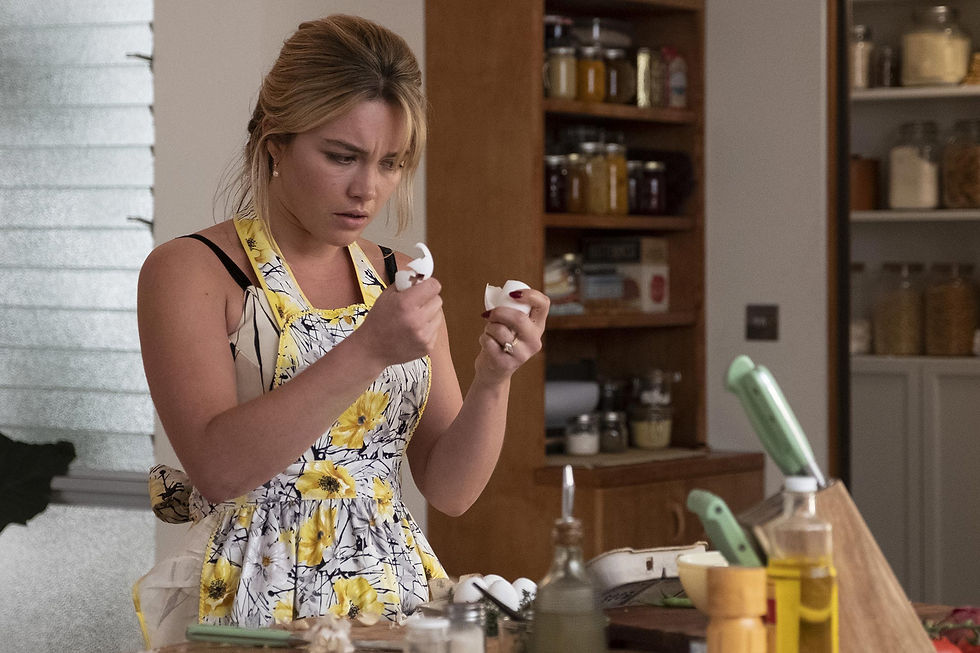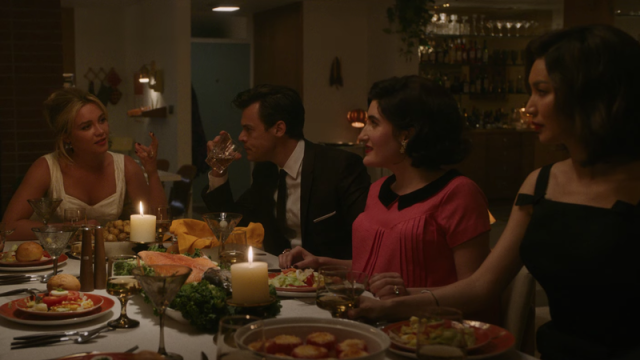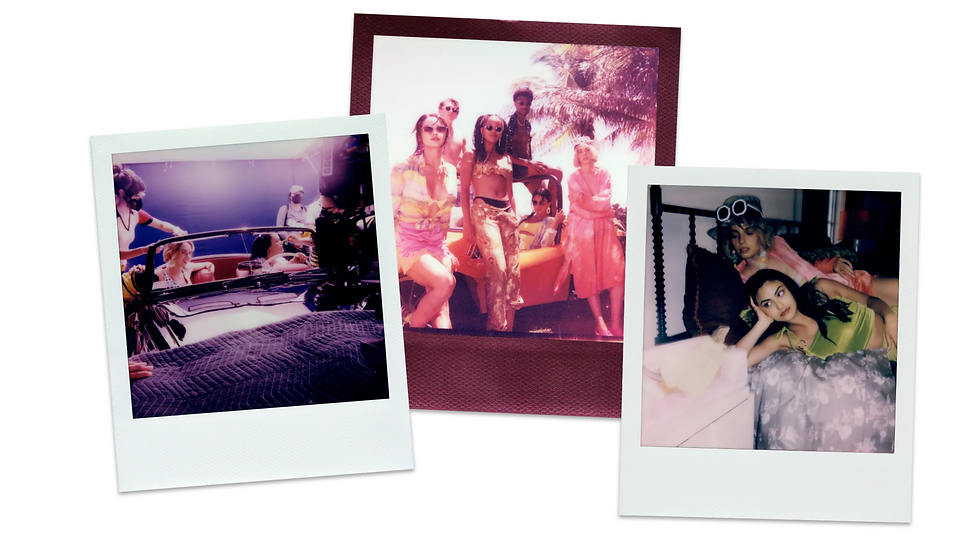Don't Worry Darling: #1 Don't Tell Me What To Do, and #2 I'm Worrying ★★★☆☆
- dawndeydusk
- Sep 25, 2022
- 4 min read
Updated: Sep 28, 2022
Well, I'll start this review with one word encapsulating the movie and its whirlwind of a press season: underwhelming.
You know how the internet was going crazy about Harry Styles spitting on Chris Pine but that never really happened? That's kind of a stand-in experience for watching the movie itself. To clarify, I went in expecting a little drama, some confusion, but eventually some clarification and answers. But really, all I got was confirmation (yet again) that Florence Pugh is one of the most phenomenal actresses of our time and...well, that's about it. It all just felt like a bunch of noise. The drama and air of hysteria surrounding the film--yes, I'm using that word intentionally because to nobody's surprise, a woman questioning her experiences and patriarchal confinement both in reality and this film is considered hysterical--are a bit of a letdown.
And here's the thing, I'll state my bias right from the beginning. I have adored Florence Pugh in every role I've seen her in (6 movies), I've admired Harry Styles since age 12 (which now adds up to about a decade), and I loved Olivia Wilde's Booksmart and role in Drinking Buddies. Despite all of this, I went in to watch the film with lower expectations. I was not expecting to be amazed by Harry Styles' performance. I was expecting Florence Pugh to carry both character and plot. I was not expecting to like Wilde's artistry in Don't Worry Darling more than Booksmart. I was expecting it to be better than Netflix movies like Spiderhead, echoing themes of agency (or lack thereof) and "utopia"-inspired projects. My expectations were met. And somehow, I was still disappointed. Kind of like Alice's (Florence Pugh) suspicion that the eggs she's holding are empty, but confirming that suspicion by breaking them provides zero satisfaction. We--Alice and audience--knew they aren't real.

Of course, there were some highlights that can't be overlooked. Do I need to mention Florence Pugh's acting again? Probably not, but it's worth another mention. There's an event in the latter half of the film hosted by the Victoria Project's cult lea--I mean organizer--Frank (Chris Pine) where Alice's eyes are glazed over with tears. Amidst a joyous crowd, she is undoubtedly terrified and miserable, and despite the glitz and glamour and damned diamonds decorating the room, that's what sticks out the most. The repeated melodies and parallel scenes as the plot descends into madness is also notable, though an overhead shot of coffee being poured can only be significant so many times (and no offense, but at least a quarter of cooking TikTok has mastered this with a phone tripod). The repeated score and spliced-in split-second horror-esque visuals also play into the underlying, gnarly truth of the entire situation.
The core issue is, however, that when we uncover that truth, I thought to myself, "So what?" And I know that's the quintessential English teacher question, but truly! I must ask, so what? There are so many more questions that could have been answered during the 123 minutes of this movie, but instead of layers to dissect we're given regurgitated themes and tropes. It's to the point that I considered adding a spoiler warning at the beginning of this review, but there's really no need--you can extract most of the movie from the trailers.
When Harry Styles said, “You know, my favorite thing about the movie is, like, it feels like a movie,” he wasn't far off. You've got some classics like an anticlimatic car crash. Anticlimactic because, well, it's in the trailer, and also...what else would happen when you've got a race against time in the desert? There's also the Black Swan-ification of it all. Cracked mirrors and ballet dancing. What else? Taking and leaving the audience. We're with and one with Alice's mind in very vulnerable situations, situations that are adjacent to if not literally voyeuristic, and then in other moments, when we reach the fringes of the fragile world-building, we're left in the dark, the concealed truth dragging on until the very last frame.
There are so many themes I wish were explored with more nuance. There's the patriarchal paradox of domestic labor. The paradox is that domestic labor is hard work -- it sustains the men of the Victoria Project who couldn't possibly do it themselves; but at the same time, it's a privilege. A privilege to clean and cook, while the men work. Also, there's the issue of compromised agency, obedience, and feigned control. Alice is the protagonist here, but why couldn't it have been Margaret (Kiki Layne) or Shelley (Gemma Chan) as well? Weaponized incompetence is another. Exhibit A: Jack (Harry Styles) smashing raw, unpeeled potatoes in a bowl with a decanter to try and make mashed potatoes.
It's kind of like the scene above. There's the luxury of the ambiance and the opulence of the food, but it's all for show. It's a set. Aestheticism in the foreground and background, with the complexity of characters so sandwiched and squished between this that they almost feel two-dimensional. Maybe it's gluttony, but I was simply left wanting more (more answers, more context, less bubbly, air-filled symbols, less humming, more exigence...you get the idea).
All in all, I'm still grateful to have been able to see this film so early on (for free, no less!), and I hope this review doesn't come off as too harsh. If I tried to make a movie I would probably combust like that fireplace Olivia Wilde mentioned. It's not a bad movie. It's just...a movie.
.png)









Thumbnail image source: https://www.youtube.com/watch?v=ofbK7Qu5Wn0